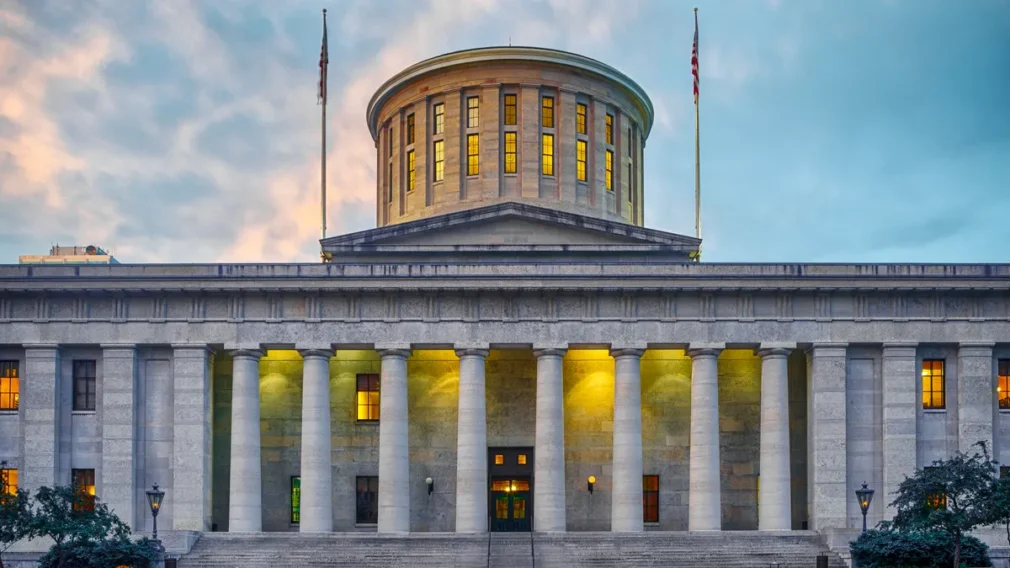Ohio’s iGaming Fight Heats Up: Senate Hearings Expose Deep Divide
Ohio’s Senate Select Committee on Gaming hearings reveal a fierce clash over legalizing iGaming, with Senate Bill 197 and House Bill 298 facing strong opposition.

A Contentious Debate
Ohio’s push to legalize online casino gaming is hitting a wall of political and social pushback, as the Senate Select Committee on Gaming grapples with Senate Bill 197 (SB 197) and House Bill 298 (HB 298).
At a packed May hearing, over 22 witnesses, mostly opponents, clashed over the bills, which aim to regulate iGaming through the Ohio Casino Control Commission.
“The vast majority of people betting today are doing it illegally,” said Scott Ward of Sports Betting Alliance, estimating a $5 billion black market in Ohio. Yet, fears of job losses, problem gambling spikes, and sky-high fees are stalling the vibe.
SB 197, sponsored by Sen. Nathan Manning, proposes a 36-40% tax rate and hefty license fees: $50 million for Ohio casinos, $100 million for out-of-state operators, allowing 11 iGaming licenses, iLottery, and horse race betting.
HB 298, led by Rep. Brian Stewart, sets a 28% tax, limits licenses to Ohio’s casinos and racinos, and bans sweepstakes gaming, with a March 31, 2026, launch deadline.
“This bill authorizes the next logical step in generating state revenue,” Stewart told the House Finance Committee, per Ohio Capital Journal. But with a third SB 197 hearing on May 28 yielding no vote, per Robert Linnehan, the road ahead looks bumpy.
Tax Revenue vs. Social Costs
Proponents see dollar signs, with FanDuel’s Cesar Fernandez claiming iGaming could spark “more than $600 million in annual tax revenue.” A study by Innovation Group projects a $2.3 billion market, yielding $840-934 million yearly.
Arc Gaming’s Bill Nader pitched legalizing 30,000 video lottery terminals (VLTs) in bars, citing Illinois’ $1 billion haul. Yet, Les Bernal of Stop Predatory Gambling warned Ohioans could lose “$24 billion of personal wealth” over five years.
Opponents dread iGaming gutting brick-and-mortar casinos, which employ thousands. Innovation Group estimates a 16% annual revenue hit, costing 2,979 jobs and $215 million in labor income.
“Jobs will be at risk,” said Aaron Womack of Unite Here Local 24, citing Atlantic City’s 5,000 job losses post-iGaming. Mark Stewart, representing JACK Entertainment, noted casinos’ $1 billion investments versus iGaming’s $500,000 and one employee.
But Fanatics’ Brandt Iden countered, saying studies show a “2% increase in land-based gaming revenues” in iGaming states. Boyd Gaming’s Ryan Soultz agreed, saying, “We’d oppose it if it threatened our business.”
Sky-High Fees and Taxes
SB 197’s $50-100 million license fees and 36-40% taxes are the nation’s highest, drawing fire even from supporters. “Licensing fees are very high,” said Fanatics’ Brandt Iden, comparing them to Michigan’s $250,000.
John Pappas of iDevelopment and Economic Association called the $50 million online fee illogical, given competition with illegal markets. HB 298’s 28% tax, lower than casinos’ 33%, irks opponents like Mark Stewart, who argued online operators face “no debt service, no amenities.”
Problem gambling experts like Brianne Doura-Schawohl sounded alarms, estimating 1.5 million Ohioans are already affected, with iGaming likely to “increase problem gaming rates.”
The Ohio Bar Owners Association’s Andrew Herf pushed for legal VLTs in bars, noting “tens of thousands” of illegal machines. But casinos see VLTs as a threat.
HB 298’s promo restrictions, limiting offers to in-person perks, drew flak from FanDuel’s Cesar Fernandez, who said it “makes us less competitive with the illegal market.” SB 197’s iLottery plan also faces pushback from grocers, fearing retail lottery losses.
With no date set for SB 197’s fourth hearing, and HB 298 awaiting committee assignment, iGaming’s fate hangs in the balance.
Recommended
